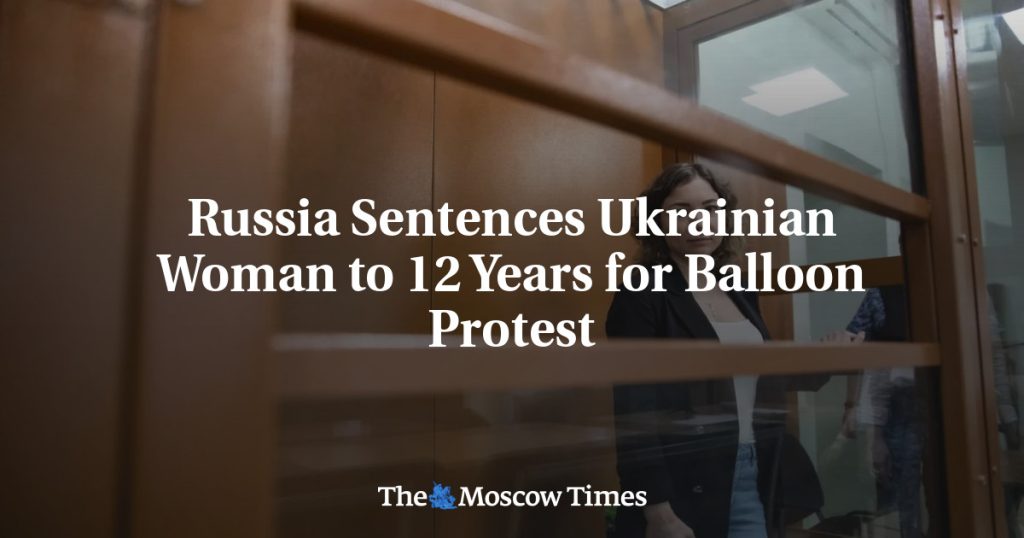The Russian military court sentenced Ukrainian citizen Kristina Lyubashenko to 12 years in prison for releasing blue-white-blue balloons, which symbolize opposition to Russia’s military offensive in Ukraine. She was found guilty of being part of a “terrorist” group and spreading “fake information” about the Russian Armed Forces. Prosecutors claimed she was acting on behalf of the banned anti-Kremlin Freedom of Russia Legion, made up of Russians who support Ukraine and oppose Moscow’s actions. The Legion has carried out armed incursions into Russia.
Lyubashenko’s lawyer revealed that she had sought refuge in Switzerland in 2022 at the start of Russia’s invasion of Ukraine. She had fled with her sick mother, elderly grandfather, and two daughters due to financial difficulties. In Switzerland, she met a man claiming to be a fellow Ukrainian refugee who lent her money. However, he then coerced her into going to Moscow and release balloons in the colors of the Ukrainian flag. Despite initially refusing to install speakers playing “fake information” on Moscow’s offensive, the man threatened to take away her daughters.
Mediazona reported that Lyubashenko told the court in Ukrainian that the circumstances of the case were clear. Since the Russian military offensive began, the country has intensified its crackdown on dissent, imposing harsh sentences on those involved in acts of sabotage and banning public expressions of support for Ukraine. The prosecution argued that Lyubashenko’s actions were meant to spread disinformation about Russia’s military actions in Ukraine, which the court deemed as a threat to national security.
Russian authorities have taken a strict stance against any form of opposition to their military operations in Ukraine, claiming that such actions jeopardize national security. The case of Kristina Lyubashenko highlights the severe consequences individuals face if they are perceived as sympathizing with Ukraine. The prosecution labeled her actions as part of a terrorist group, underscoring the government’s intolerance towards dissenting voices inside the country.
The Russian military court’s sentencing of Lyubashenko showcases the government’s determination to suppress any form of protest or opposition to their military campaigns. By punishing individuals like Lyubashenko with lengthy prison terms, the authorities aim to deter others from engaging in similar acts. The ban on publicly expressing solidarity with Ukraine further underscores the government’s efforts to control narratives and public perception of its military actions in the region.
The case of Kristina Lyubashenko highlights the intersection of personal struggles, coercion, and political persecution in the context of Russia’s military campaign in Ukraine. Her lawyer’s account of her being manipulated into carrying out actions against her will underscores the complexities surrounding acts of dissent and resistance in authoritarian regimes. The harsh sentencing of individuals like Lyubashenko also raises concerns about the erosion of civil liberties and freedom of expression under the current political climate in Russia.


